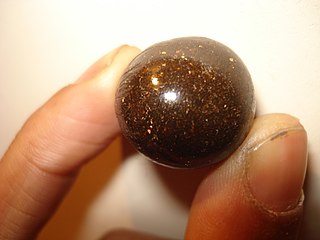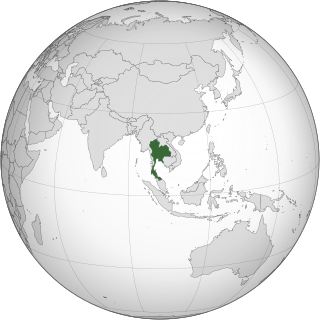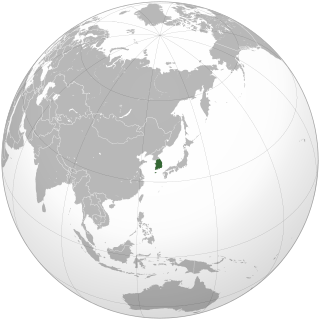
The prohibition of drugs through sumptuary legislation or religious law is a common means of attempting to prevent the recreational use of certain intoxicating substances.

The legality of cannabis for medical and recreational use varies by country, in terms of its possession, distribution, and cultivation, and how it can be consumed and what medical conditions it can be used for. These policies in most countries are regulated by three United Nations treaties: the 1961 Single Convention on Narcotic Drugs, the 1971 Convention on Psychotropic Substances, and the 1988 Convention Against Illicit Traffic in Narcotic Drugs and Psychotropic Substances. Cannabis was reclassified in 2020 to a Schedule I-only drug under the Single Convention treaty, with the schedules from strictest to least being IV, I, II, and III. As a Schedule I drug under the treaty, countries can allow the medical use of cannabis but it is considered to be an addictive drug with a serious risk of abuse.

Bhang is an edible preparation made from the leaves of the cannabis plant originating from the Indian subcontinent. It has been used in food and drink as early as 1000 BC in ancient India. Bhang is traditionally distributed during the spring festival of Maha Shivaratri and Holi. Bhang is mainly used in bhang shops, which sell the cannabis-infused Indian drinks bhang lassi and bhang thandai.

Charas is a cannabis concentrate made from the resin of a live cannabis plant and is handmade in the Indian subcontinent. The plant grows wild throughout Northern India along the stretch of the Himalayas and is an important cash crop for the local people. The difference between charas and hashish is that hashish is made from a dead cannabis plant and charas is made from a live one.

In the United States, the removal of cannabis from Schedule I of the Controlled Substances Act, the category reserved for drugs that have "no currently accepted medical use", is a proposed legal and administrative change in cannabis-related law at the federal level. After being proposed repeatedly since 1972, the U.S. Department of Justice initiated 2024 rulemaking to reschedule cannabis to Schedule III of the Controlled Substances Act. The majority of 2024 public comments supported descheduling, decriminalizing, or legalizing marijuana at the federal level.

The Single Convention on Narcotic Drugs, 1961 is a United Nations treaty that controls activities of specific narcotic drugs and lays down a system of regulations for their medical and scientific uses; it also establishes the International Narcotics Control Board.

The Narcotic Drugs and Psychotropic Substances Act, 1985, commonly referred to as the NDPS Act, is an Act of the Parliament of India that prohibits the production/manufacturing/cultivation, possession, sale, purchase, transport, storage, and/or consumption of any narcotic drug or psychotropic substance. The bill was introduced in the Lok Sabha on 23 August 1985. It was passed by both the Houses of Parliament, received assent from then President Giani Zail Singh on 16 September 1985, and came into force on 14 November 1985. The NDPS Act has since been amended four times — in 1988, 2001, 2014 and 2021. The Act extends to the whole of India and applies also to all Indian citizens outside India and to all persons on ships and aircraft registered in India.

The Misuse of Drugs Act 1975 is a New Zealand drug control law that classifies drugs into three classes, or schedules, purportedly based on their projected risk of serious harm. However, in reality, classification of drugs outside of passing laws, where the restriction has no legal power, is performed by the governor-general in conjunction with the Minister of Health, neither of whom is actually bound by law to obey this restriction.

In the United States, increased restrictions and labeling of cannabis as a poison began in many states from 1906 onward, and outright prohibitions began in the 1920s. By the mid-1930s cannabis was regulated as a drug in every state, including 35 states that adopted the Uniform State Narcotic Drug Act. The first national regulation was the Marihuana Tax Act of 1937.

Drug liberalization is a drug policy process of decriminalizing, legalizing, or repealing laws that prohibit the production, possession, sale, or use of prohibited drugs. Variations of drug liberalization include drug legalization, drug relegalization, and drug decriminalization. Proponents of drug liberalization may favor a regulatory regime for the production, marketing, and distribution of some or all currently illegal drugs in a manner analogous to that for alcohol, caffeine and tobacco.

Cannabis political parties are generally single-issue parties that exist to oppose the laws against cannabis.
The major drug laws of India are the Narcotic Drugs and Psychotropic Substances Act (1985) and the Prevention of Illicit Trafficking in Narcotic Drugs and Psychotropic Substances Act (1988).

Cannabis in India has been known to be used at least as early as 2000 BCE. In Indian society, common terms for cannabis preparations include charas (resin), ganja (flower), and bhang, with Indian drinks such as bhang lassi and bhang thandai made from bhang being one of the most common legal uses.

Cannabis has been illegal in Nepal since 1976, but the country has a long history of use of cannabis for Ayurvedic medicine, intoxicant and as a holy offering for Hindu god Shiva and continues to produce cannabis illicitly.

Cannabis is illegal in Pakistan for recreational use, although since September 2020, extracts of cannabis can be used for industrial and medical use. Cannabis is widely consumed in Pakistan as charas and bhang.

Cannabis in Slovakia is illegal for all purposes and possession of even small amounts of the drug can lead to lengthy prison terms. Possession or use of small amounts of cannabis is punishable by up to eight years in prison. In April 2012, The Wall Street Journal reported that Robert Fico, the incoming Slovak prime minister, might push for partial legalisation of cannabis possession, and has argued for the legalisation of possession of up to three doses of cannabis for personal use.

In Thailand, cannabis, known by the name Ganja has recently had new laws passed through. Cannabis that has less than 0.2% THC, referred to as industrial hemp in USA, was legalised on 9 June 2022. Medicinal cannabis, with no THC restrictions, was made legal in 2018 but required patients to obtain a prescription from a medical practitioner. Recreational cannabis is still illegal according to Thai law.
The list includes and details significant events that occurred in the global history of national-level implementations of, or changes made to, laws surrounding the use, sale, or production of the psychoactive drug cannabis.

Cannabis in South Korea is illegal for recreational use. In November 2018, the country's Narcotics Control Act was amended and use of medical cannabis became legal, making South Korea the first country in East Asia to legalize medical cannabis.

Terms related to cannabis include:
















